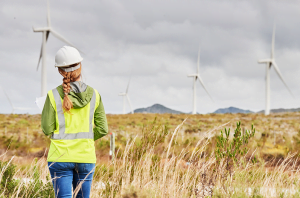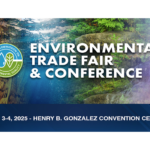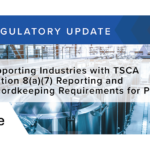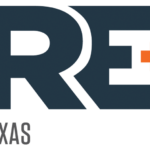
Environmental compliance auditing is a critical process for organizations to demonstrate adherence to environmental regulations and standards. By conducting regular audits, businesses can identify and address any non-compliance issues, proactively mitigate risks, and ensure sustainable operations. One company at the forefront of providing comprehensive environmental compliance auditing services is Irving, committed to assisting organizations in meeting their environmental responsibilities and achieving compliance excellence.
Understanding Environmental Compliance Auditing
Definition and Importance of Environmental Compliance Auditing
Environmental compliance auditing refers to the systematic examination and evaluation of an organization’s activities, processes, and procedures to ensure compliance with applicable environmental laws, regulations, permits, and internal policies. It is an essential tool in identifying areas of non-compliance, addressing environmental risks, and fostering continuous improvement.
Compliance auditing holds great significance for organizations across industries. By adhering to environmental laws and regulations, businesses protect the environment, minimize legal and financial risks, safeguard their reputation, and gain a competitive edge. It showcases an organization’s commitment to responsible environmental management and sustainable practices.
But what exactly goes into conducting an effective environmental compliance audit? Let’s delve deeper into the key components that make up this crucial process.
Key Components of Environmental Compliance Auditing
Environmental compliance auditing encompasses several key components that contribute to its effectiveness:
- Comprehensive Assessment: Auditors evaluate an organization’s compliance with specific environmental requirements, such as air emissions, wastewater management, hazardous waste disposal, and land use. This thorough assessment ensures that all aspects of the organization’s operations are in line with environmental regulations.
- Documentation Review: Auditors thoroughly examine environmental permits, procedures, records, and reports to ensure accuracy, completeness, and compliance. This meticulous review helps identify any discrepancies or gaps in documentation that may indicate non-compliance.
- On-site Inspections: Auditors conduct physical inspections of facilities to assess compliance with environmental regulations, identify any violations, and recommend corrective actions. These on-site inspections provide a firsthand look at the organization’s operations and allow auditors to identify potential areas of improvement.
- Data Analysis: Auditors analyze environmental monitoring data, such as air and water quality measurements, to verify compliance and identify potential areas of concern. This data-driven analysis helps auditors identify trends, patterns, and potential risks that may not be immediately apparent.
By incorporating these key components into the environmental compliance auditing process, organizations can ensure a comprehensive and thorough evaluation of their environmental performance. This not only helps them meet legal requirements but also promotes a culture of sustainability and responsible environmental stewardship.
Moreover, environmental compliance auditing goes beyond mere regulatory compliance. It provides organizations with an opportunity to identify areas for improvement and implement best practices that go above and beyond what is legally required. By proactively addressing environmental risks and adopting sustainable practices, organizations can enhance their reputation, attract environmentally conscious customers, and contribute to a greener and more sustainable future.
The Role of Irving in Environmental Compliance Auditing
Irving’s Approach to Environmental Compliance Auditing
Irving takes a proactive approach to environmental compliance auditing, understanding that effective compliance management requires comprehensive assessments and tailored solutions. Their auditors possess extensive knowledge and experience to provide organizations with accurate evaluations and actionable recommendations.
Irving embraces a systematic framework for auditing, ensuring that all aspects of environmental compliance are thoroughly assessed. Their approach incorporates a combination of document reviews, on-site inspections, and data analysis to create a holistic understanding of an organization’s environmental performance.
Services Offered by Irving in Environmental Compliance
Irving offers a wide range of services to support organizations in achieving and maintaining environmental compliance:
- Environmental Compliance Assessments: Irving conducts detailed assessments to identify compliance gaps and develop strategies for improvement. These assessments help organizations align their practices with regulatory requirements and industry best practices.
- Compliance Program Development: Irving assists organizations in developing robust compliance programs tailored to their specific needs. These programs encompass policies, procedures, training, and monitoring mechanisms to ensure ongoing compliance.
- Regulatory Updates and Guidance: Irving keeps organizations informed about the latest environmental regulations and industry trends. They offer guidance on adapting to evolving compliance requirements and help organizations stay ahead of changing environmental standards.
- Environmental Training and Education: Irving provides training sessions and educational resources to enhance organizations’ understanding of environmental compliance. They aim to empower employees with the knowledge and skills necessary to meet compliance obligations.
The Process of Environmental Compliance Auditing in Irving
Pre-Audit Activities
Before commencing an environmental compliance audit, Irving’s team collaborates closely with the organization to establish clear objectives and expectations. This includes understanding the company’s operations, reviewing relevant environmental permits and documentation, and developing an audit plan tailored to the organization’s goals.
Conducting the Audit
During the on-site portion of the audit, Irving auditors follow a detailed checklist to systematically assess compliance with applicable environmental regulations. They interview key personnel, conduct facility inspections, and review records and documentation to evaluate compliance performance. Any non-compliance issues or potential areas for improvement are identified and prioritized.
Post-Audit Activities
After the audit, Irving provides organizations with a comprehensive audit report that outlines findings, identifies non-compliance issues, and recommends corrective actions. The report serves as a roadmap for organizations to address identified gaps, improve environmental performance, and achieve compliance excellence. Irving also offers ongoing support and guidance to ensure successful implementation of recommended actions.
Challenges in Environmental Compliance Auditing
Common Obstacles in Compliance Auditing
Environmental compliance auditing is not without its challenges. Some of the common obstacles include:
- Complex Regulatory Environment: Navigating the ever-changing landscape of environmental regulations can be daunting. Auditors must stay updated with evolving requirements and interpret them correctly.
- Data Availability and Integrity: Availability and integrity of environmental data can pose challenges during audits. Organizations need robust systems to collect, manage, and report accurate environmental data.
- Resource Limitations: Limited resources, both financial and human, can impede an organization’s ability to conduct thorough compliance audits. Effectively allocating resources is crucial for successful auditing.
Overcoming Challenges in Environmental Compliance Auditing
To overcome these challenges, organizations can collaborate with experienced environmental compliance auditing firms like Irving. Leveraging their expertise and knowledge ensures that organizations stay abreast of regulatory changes, have accurate data management systems in place, and efficiently allocate resources to auditing activities.
Future Trends in Environmental Compliance Auditing
Technological Advancements in Compliance Auditing
The field of environmental compliance auditing is leveraging technological advancements to enhance efficiency, accuracy, and cost-effectiveness. Innovations such as remote auditing tools, data analytics, and artificial intelligence are transforming traditional audit methods, enabling auditors to detect non-compliance issues more effectively.
Evolving Regulations and Their Impact on Auditing
Environmental regulations are continually evolving to address emerging challenges, such as climate change and resource depletion. This necessitates a dynamic approach to compliance auditing. Auditors must remain adaptable and responsive to changing regulatory requirements while helping organizations navigate complex compliance landscapes.
In conclusion, environmental compliance auditing plays a vital role in ensuring organizations meet their environmental responsibilities. By partnering with reputable firms like Irving, organizations can overcome compliance challenges, achieve regulatory compliance, and demonstrate their commitment to sustainable practices. As technological advancements and evolving regulations shape the future of compliance auditing, businesses must embrace these changes to enhance environmental performance and safeguard the planet for future generations.
As environmental regulations continue to evolve and the need for compliance becomes ever more critical, it’s essential to choose a partner that can navigate the complexities of environmental challenges with expertise and innovation. ESE Partners is dedicated to responsibly moving your business forward while addressing environmental concerns with comprehensive solutions. Whether you require due diligence, remediation, or compliance services, our team of skilled environmental engineers and scientists is ready to support you. Embrace the future of environmental stewardship and Request A Proposal today to see how we can help you meet your environmental obligations and improve your community’s quality of life.








